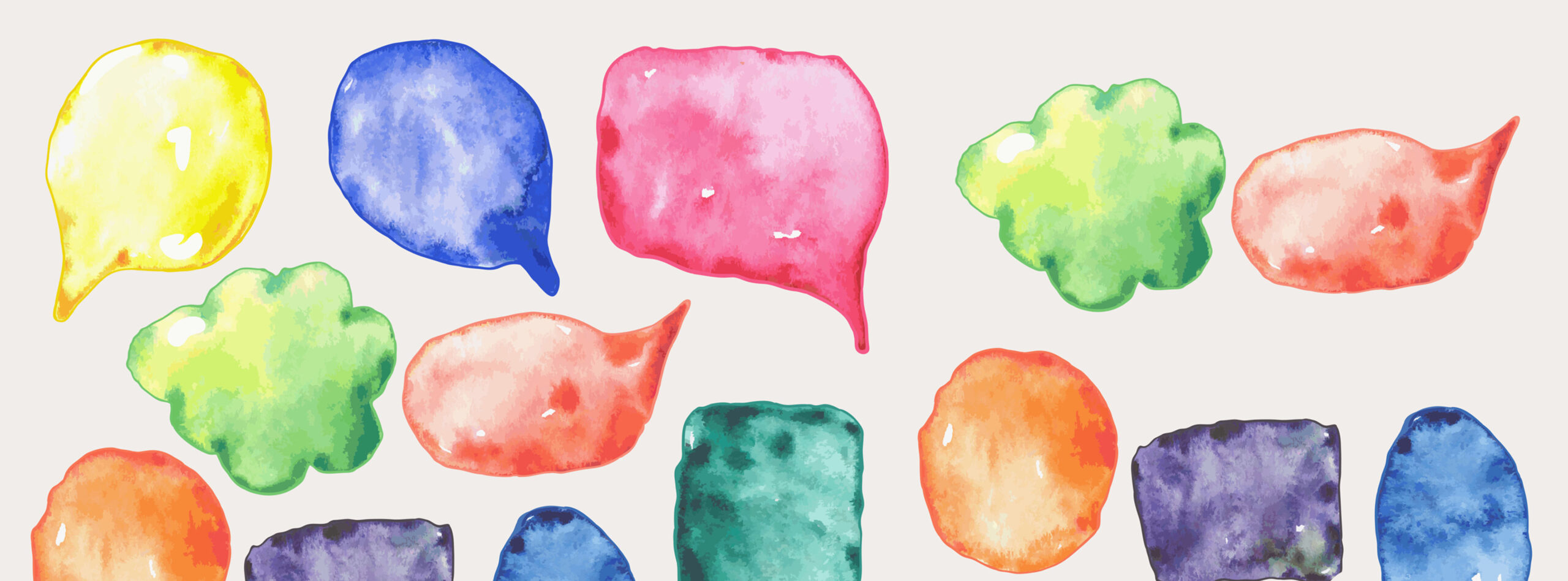In the Northern hemisphere, August is a quiet month when we try to stay cool, hopefully take time off, and then prepare for the academic year to kick off again. The slower pace has been a perfect time for the Horizons team to dig into so many new narrative resources, like this meaty compilation from the Narrative Initiative. Narrative competency is a key area of exploration for Horizons; and we remain committed to weaving bridgebuilding and powerbuilding concepts into our Narrative Engagement Across Difference initiative.
This IFIT report on Narrative, Power and Polarisation highlights that instead of one unifying narrative to counter polarization, we need to illuminate narrative biases, change narratives from within, and amplify smaller stories that help build social engagement at scale. This aligns with More In Common’s new report on American identity, which finds that personal stories of family history are a powerful way to break through the “us vs. them” narrative.
Many narrative practitioners are coming to the conclusion that we must be more conscious of fostering a sense of agency and community, rather than perpetuating a competitive, scarcity mindset that often comes with stories of crises. Framing choices have the power to inspire all of us to work through shared problems and to embrace a civic identity that respects differences, as also highlighted in this wonderful video series from Doing Things With Stories.
Here are some other resources we have found inspiring this month:
READING
Callings from “Fierce Civility”
By: Curtis Ogden
“Civility has (almost) become a dirty word, seen as naive and impossible by some (at least when considering certain cultural and political divides), and as harmful by others, if ‘being civil’ means not speaking or hearing truths or working for social justice.” Fierce civility is not about ‘chronic niceness’ or conflict avoidance, but rather advocates for stances of assertiveness (as opposed to aggression) and receptivity (as opposed to passivity.)”
By: Amna Khalid and Jeffrey Aaron Snyder
“In the United States today, the left and right alike have aggressively embraced cancelation campaigns. Each side has its own distinctive objectives, strategies, initiatives and networks—as well as its own particular strongholds.”
By: Ian Leslie
“We live in age of social influence, and while there is no shortage of advice on [how] to influence others, how to build a following, how to change minds – there is a dearth of thinking on how to be influenced…Each human being is bounded but permeable, a creature capable of making its own thoughts and actions but prone to copying and adapting those of others. When everyone around us is doing the same thing, we feel a pressure to join in that is almost physical in its force.”
By: Maree Conway
“If we accept that we don’t know why someone is doing something we don’t accept, we can begin to accept that it may not be a case of us right, them wrong. We’ve observed something that arouses something in us, but we can reject being judgemental as a response. We can accept that not knowing is okay. Of course, there are situations where this stance won’t apply and events that cause harm to others in particular are just wrong.”
A Funder’s Guide to Building Social Cohesion
By: The Democracy Funders Network, in collaboration with Civic Health Project, New Pluralists, and Philanthropy for Active Civic Engagement
This guide is intended to orient funders to the different ways civil society actors are thinking about and addressing the problems of affective polarization and eroding social trust.
WATCHING
Larger US put out this great video to accompany their new report on the need for collective psychology to counter tribalism and polarization. You can also find excellent explanatory Twitter threads here.
Are Americans Thinking More Systemically?
Check out this roundtable discussion hosted by the FrameWorks Institute featuring community leaders and organizers discussing the implications of shifting mindsets from individualistic to systemic level thinking and the impacts on health equity, the economy, race, and politics.
Radical Belonging and Bridging: A Path Forward for Societies in Crisis?
“…for too long, civic leaders concerned centrally with democracy and those concerned with the rights of marginalized and minority communities have worked in silos, despite the many shared goals and values that both groups share.” Watch this important conversation, the first in a series, that launched the Democracy & Belonging Forum of the Othering & Belonging Institute.
LISTENING
Hungarian Autocracy and The American Right
By: Fresh Air
“New Yorker journalist Andrew Marantz says Prime Minister Viktor Orbán’s administration has rewritten Hungary’s constitution to consolidate his power. U.S. conservatives are taking note.”
Radical Grievance with Malkia Devich-Cyril
By: The Emergent Strategy Podcast
“Grief is power…and a way to strength and intimacy.” This is a great conversation about our collective embrace of grief that can also aid in our journey to build belonging.
Eboo Patel and the Vision for an Interfaith America
By: Ashoka
Eboo Patel discusses his most recent book, We Need to Build: Field Notes For Diverse Democracy, to inspire and equip changemakers to move beyond critique and begin to build the next pluralist chapter of American life.
INTERESTING TWEETS






FOR FUN
Reach for the stars! The images released by NASA’s Webb telescope captured everyone’s imaginations this month. Check out this great breakdown from The Washington Post, which provides more background into exactly what each photo portrays.
So much of the news is consumed with what’s going wrong in the world that it can be hard to point to the bright spots and beauty that also exists. Check out the Peace Dots Project, which seeks to do just that in Buffalo, NY.

